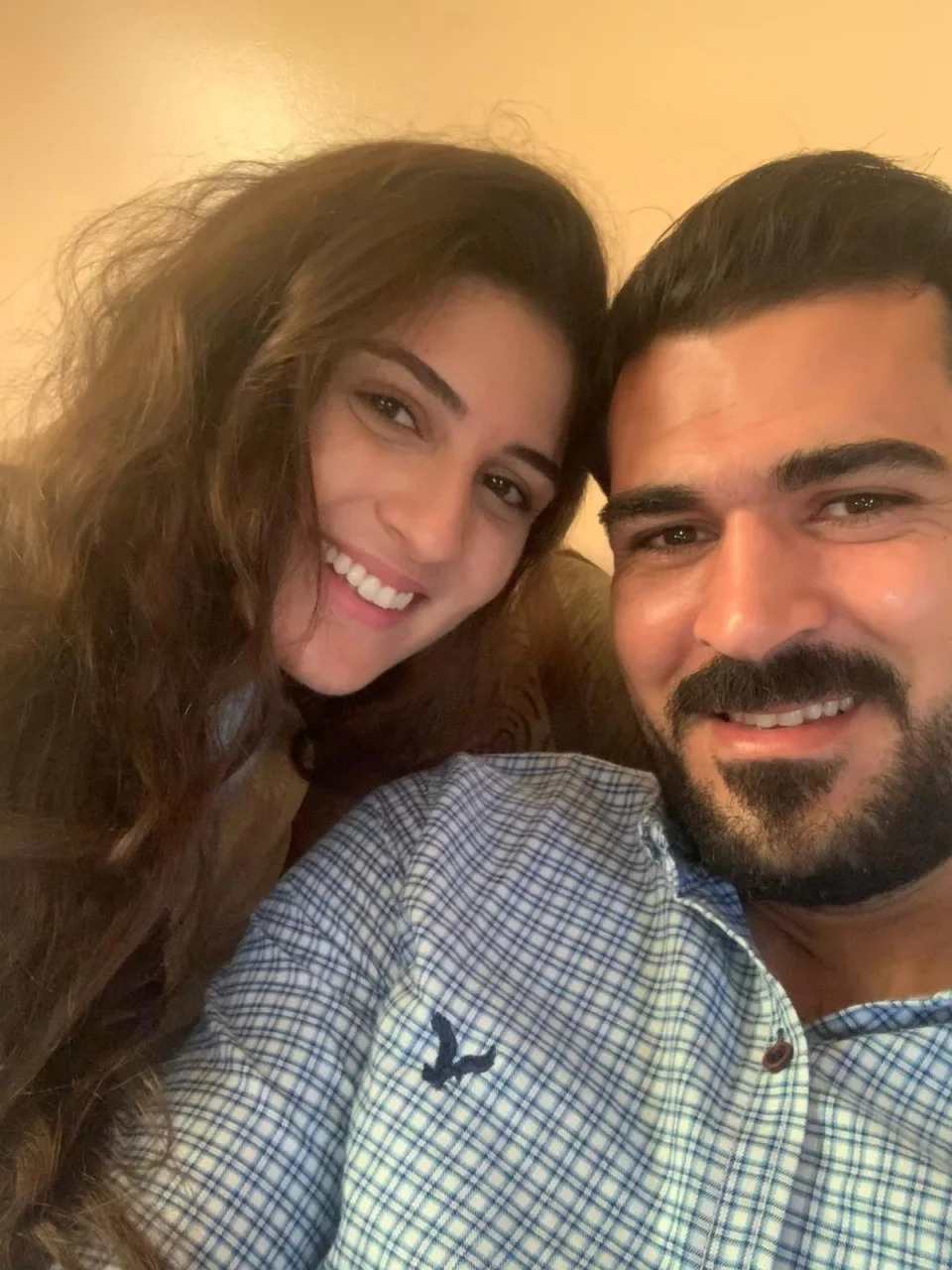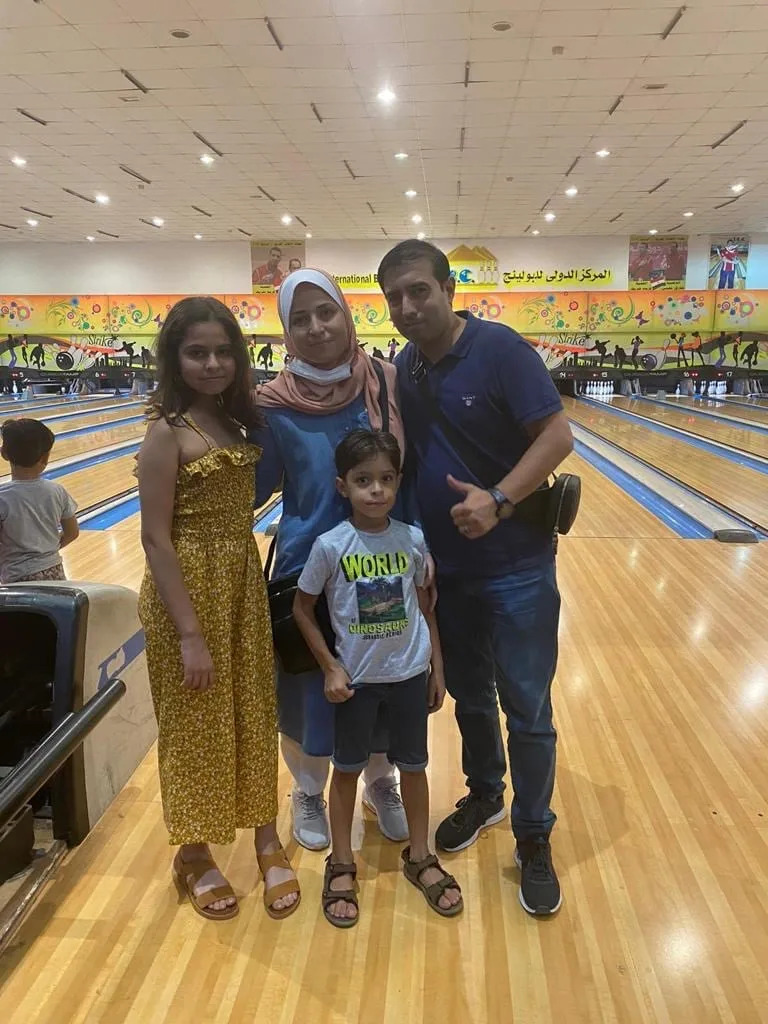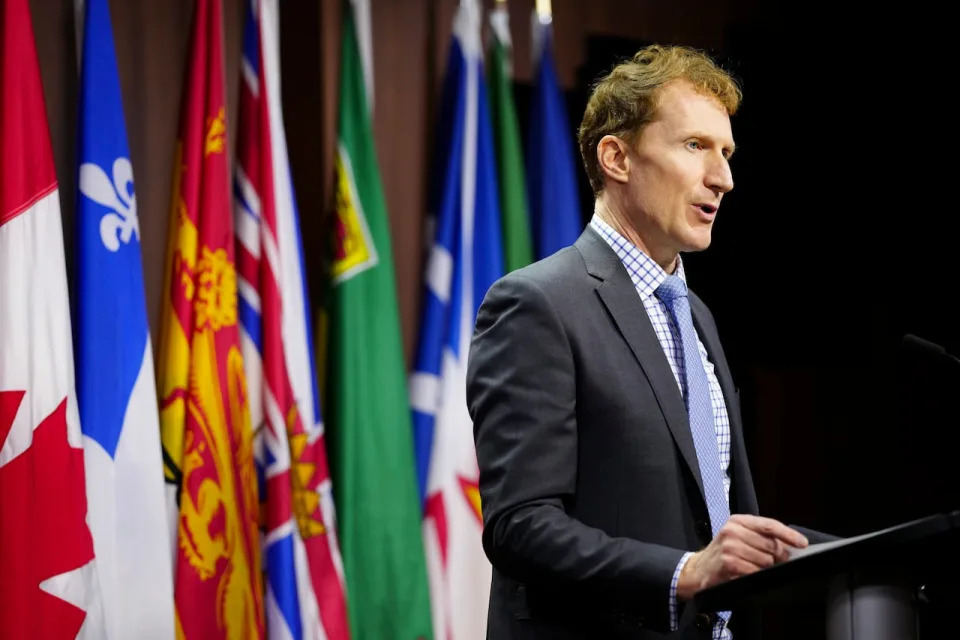It's hard for Shouq Alnajjar to hold her anger in check when she talks about the the family she left behind in Gaza.
"They're living in hell," she said. "It's so dangerous there."
Alnajjar, a Palestinian-Canadian, was living in Gaza City with her Palestinian husband when Israel declared war on Hamas following Hamas's brutal Oct. 7 attack on Israeli civilians.
After weeks of waiting and anxious phone calls to Global Affairs Canada, Alnajjar was able to get herself, her husband and her mother on the approved list to leave Gaza through the Rafah Gate border crossing.
Alnajjar and her mother fled Gaza on Nov. 12; they're now in Cairo. She said her husband stayed behind to look after his mother, who needs care after knee surgery, and has not been included in the list of people approved to leave the Gaza Strip.

Palestinian-Canadian Shouq Alnajjar with her husband Othman Alnajjar. She is currently in Cairo and hoping her husband's mother can be added to the list of people approved to leave the Gaza Strip. (Submitted/CBC News)
Alnajjar said Global Affairs Canada told her that her mother-in-law was not eligible to leave because "she does not meet the criteria for immediate family."
"They just don't care if my husband dies in Gaza," she said of Global Affairs Canada, "I cannot believe that this is how we are treated."
Alnajjar is far from alone. In a statement sent to CBC News, Global Affairs Canada said that as of Dec. 7, there are roughly 200 Canadian citizens and permanent residents, along with family members, stuck in Gaza and looking to leave. The government said it can't comment on individual cases.
'We don't want to die'
From his home in Burlington, Ont., Nael Alhalis relies on phone updates from his wife Enas and young children, who are also trapped in Gaza.
"They say, 'Baba, we miss you. We don't want to die. We want to be with you'," said Alhalis, describing his conversations with his 13-year-old daughter Layan and nine-year-old son Kareem.
"It really breaks my heart. It's a heart-wrenching situation. I break and I cry."

Nael Alhalis (right) with his wife Enas Alhalis and their children Layan (left) and Kareem in an undated photo. (Submitted/CBC News)
Alhalis' children are on the list to leave the Gaza Strip. His wife is not. He said he's contacted the office of his local member of Parliament and Global Affairs Canada to advocate for his wife.
Alhalis' wife and their children live in Gaza full-time, but he splits his time between Canada and the Gaza Strip. He said his family is suffering.
"Our children don't have blankets to keep warm. They don't have any warm water to wash," he said, adding that they've only taken two showers in the last two months.
"I'm traumatized. And I'm not under constant bombing. What about my family? My kids?
"Every millisecond, that means life or death to my family. This is the message that the Canadian government should act upon."
Canada's minister of immigration said getting family members of Canadians out of Gaza continues to be a priority.

Immigration Minister Marc Miller said it's not up to Canada to decide who gets to leave the Gaza Strip. (Sean Kilpatrick/The Canadian Press)
"We are in hourly contact with officials on the ground, advocating for Canadians, permanent residents and these extended configurations of their families to get out," Marc Miller told journalists Thursday in Ottawa.
Miller said that, ultimately, Israel, Egypt and Hamas decide who gets out of Gaza — not Canada.
"As much as we advocate, as much as we put in place a policy, as much as we perhaps even issue visas, it isn't actually a guarantee that those people will actually get out," he said.
"We have people on our list that we were not able to extract, as frustrating as it is."
When asked if the Canadian government is trying to get visas for family members of Canadians, Miller said the government is pursuing "a number of options" but he could not disclose those plans.


